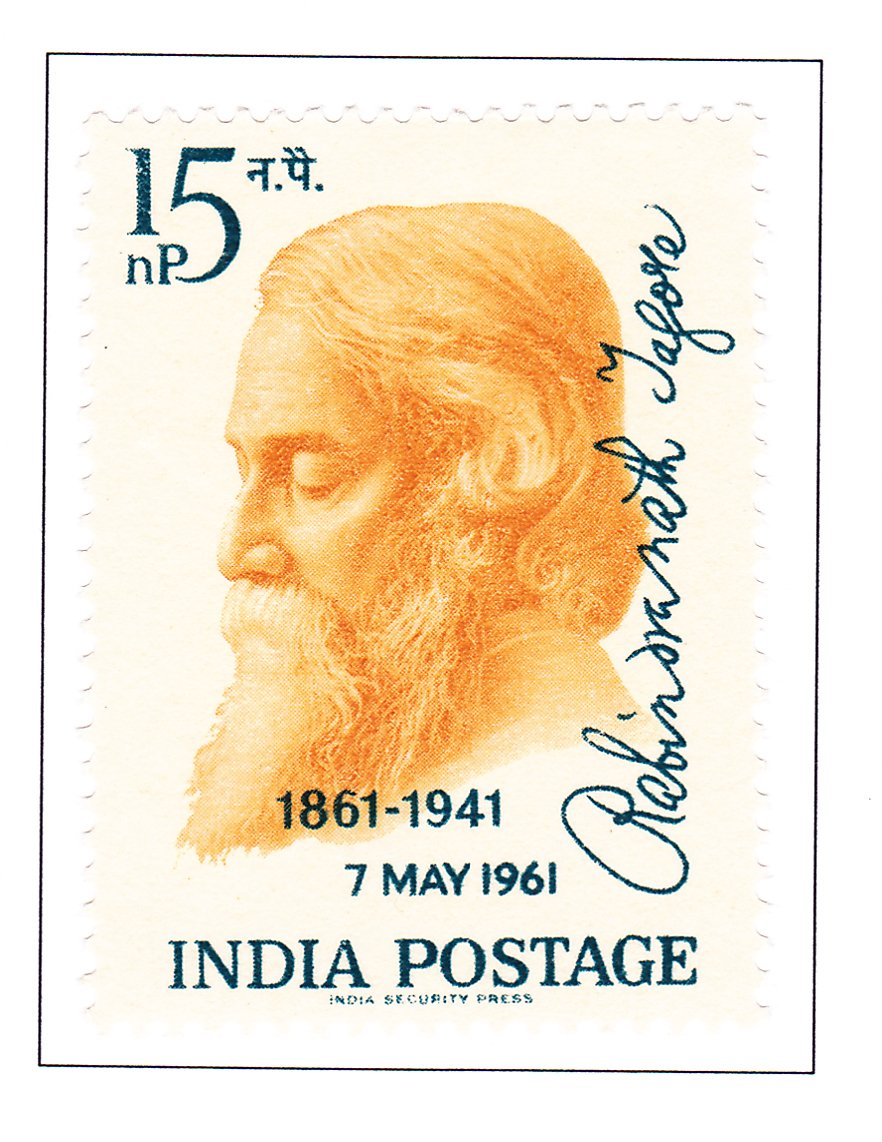Rabindranath Tagore 1861-1941

Technical Data
| Stamp Set | Birth Centenary |
|---|---|
| Date of Issue | May 7, 1961 |
| Denomination | 15 nP |
| Quantity | 2,500,000 |
| Perforation | comb 13 x 13½ |
| Printer | Security Printing Press, Nashik |
| Watermark | Asokan Capital Multiple [Up] |
| Colors | Blue green | Orange |
| Catalog Codes |
Michel IN 325 Stamp Number IN 341 Yvert et Tellier IN 126 Stanley Gibbons IN 439 |
| Themes | Anniversaries and Jubilees | Authors | Famous people | Literary People (Poets and Writers) | Literature | Men | Nobel Laureates |
Rabindranath Tagore (1861-1941) was born into a time of transition in India, where the clash of Western influence with traditional values created an environment ripe for intellectual and cultural awakening. Tagore’s birthplace in Bengal, particularly Calcutta, was at the forefront of this movement, experiencing both the impact of Western ideas and a resurgence of Eastern values.
The circumstances of Tagore’s family further enriched his upbringing. Descended from a wealthy and culturally influential lineage, Tagore’s family embraced both Western education and the deeper values of Indian spirituality. His grandfather was involved in the promotion of Western education, while his father was deeply immersed in philosophical and mystical studies, blending elements of Hindu and Islamic traditions.
Raised in a religious atmosphere that emphasized universal principles over rigid dogma, Tagore’s upbringing provided fertile ground for his expansive intellect to flourish. His literary output, which includes poetry, songs, short stories, novels, plays, and essays, is immense and diverse, showcasing his profound understanding of human nature and the world around him.
Tagore’s contributions to literature have earned him global recognition as one of the greatest literary figures in history. His works, which span a wide range of themes and genres, continue to inspire readers worldwide with their depth, beauty, and timeless relevance.
